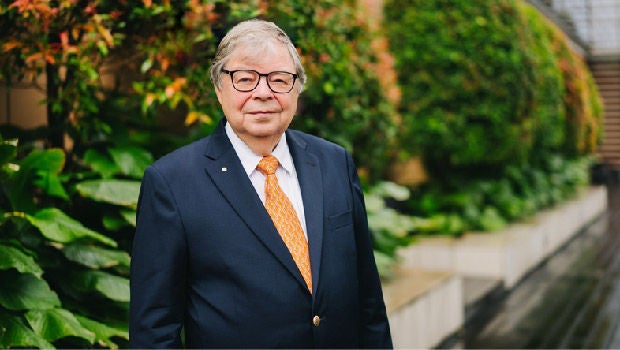SingHealth Institutions will NEVER ask you to transfer money over a call. If in doubt, call the 24/7 ScamShield helpline at 1799, or visit the ScamShield website at www.scamshield.gov.sg.

Prof Tryggvason and his team are now capable of developing fully humanised, chemically defined, reproducible and non-tumourigenic differentiation protocols for making several cell types derived from human embryonic stem cells.
In a boost to regenerative therapies for damaged hearts and eyes, Duke-NUS has licensed two laminin-related patents to Sweden biotech start-up Alder Therapeutics to enhance the development of Alder’s retinal and cardiac cell therapeutic products.
Both licenses originated from discoveries made by Professor Karl Tryggvason from Duke-NUS’ Cardiovascular and Metabolic Disorders Programme, who discovered that this family of proteins can direct stem cell differentiation. Using highly cell-type-specific laminins, Prof Tryggvason and his team are now capable of developing fully humanised, chemically defined, reproducible and non-tumourigenic differentiation protocols for making several cell types derived from human embryonic stem cells.
One of the two inventions being advanced to clinical application by Alder is based on the retinal cell research led by Assistant Professor Tay Hwee Goon from Duke-NUS’ Centre for Vision Research. With the ability to produce two previously unavailable retina-specific laminins—LN-523 and LN-323—the team has developed a method to influence human embryonic stem cells to differentiate into photoreceptors, presenting an effective treatment option that may benefit patients who have lost their vision due to retinal degeneration. When engrafted, the team demonstrated that these cells prevented further damage to the retina and improved visual function in preclinical studies.
The other technology licensed to Alder for therapeutic development is a novel protocol to generate heart muscle precursors, called cardiomyocyte progenitors, from human embryonic stem cells. Led by Assistant Professor Lynn Yap from Duke-NUS’ Cardiovascular and Metabolic Disorders Programme, the team can generate these precursors from human embryonic stem cells in 9 to 11 days using laminin LN-221, a protein that is abundantly present in heart muscles. In preclinical tests, the team observed an increase in heart function and lack of tumour formation, paving the way for a safe and effective way to regenerate human heart muscle.
"Cell-based regenerative therapies offer hope to patients with blindness and ischemic heart disease caused by common age-related degenerative conditions," said Prof Tryggvason, who is also the Tanoto Foundation Professor in Diabetes Research. "Our proprietary methods to differentiate human embryonic stem cell-derived cell types using laminins can unleash the potential of stem cell technology, provide more treatment options for better patient outcomes, and help reduce the societal burden of an ageing population."
Commenting on the inventions, Dr Kristian Tryggvason, CEO of Alder Therapeutics, said, "We are excited and impressed by both the quality and robustness of the methods that were developed by these excellent scientists. We are looking forward to incorporating these innovations to fine-tune our processes and to testing these therapeutic cells in patients."
"The partnership with Alder Therapeutics is a manifestation of the innovative spirit at Duke-NUS as we strive to realise the School’s vision of transforming medicine and improving lives. Our scientists are committed to not just ground-breaking scientific discoveries, but also to translating these findings into real-world clinical applications with like-minded partners. We are excited that these two inventions from the School are nearing the bedside, where they may fix damaged hearts and restore eyesight, leading to tangible improvements to patient care," said Assistant Professor David Wang, Director of the Centre for Technology and Development at Duke-NUS.
Keep Healthy With
© 2025 SingHealth Group. All Rights Reserved.



















